Affiliate links on Android Authority may earn us a commission. Learn more.
TCL 10 Pro and 10L review: Is 'good enough' good enough?
Published onMay 13, 2022
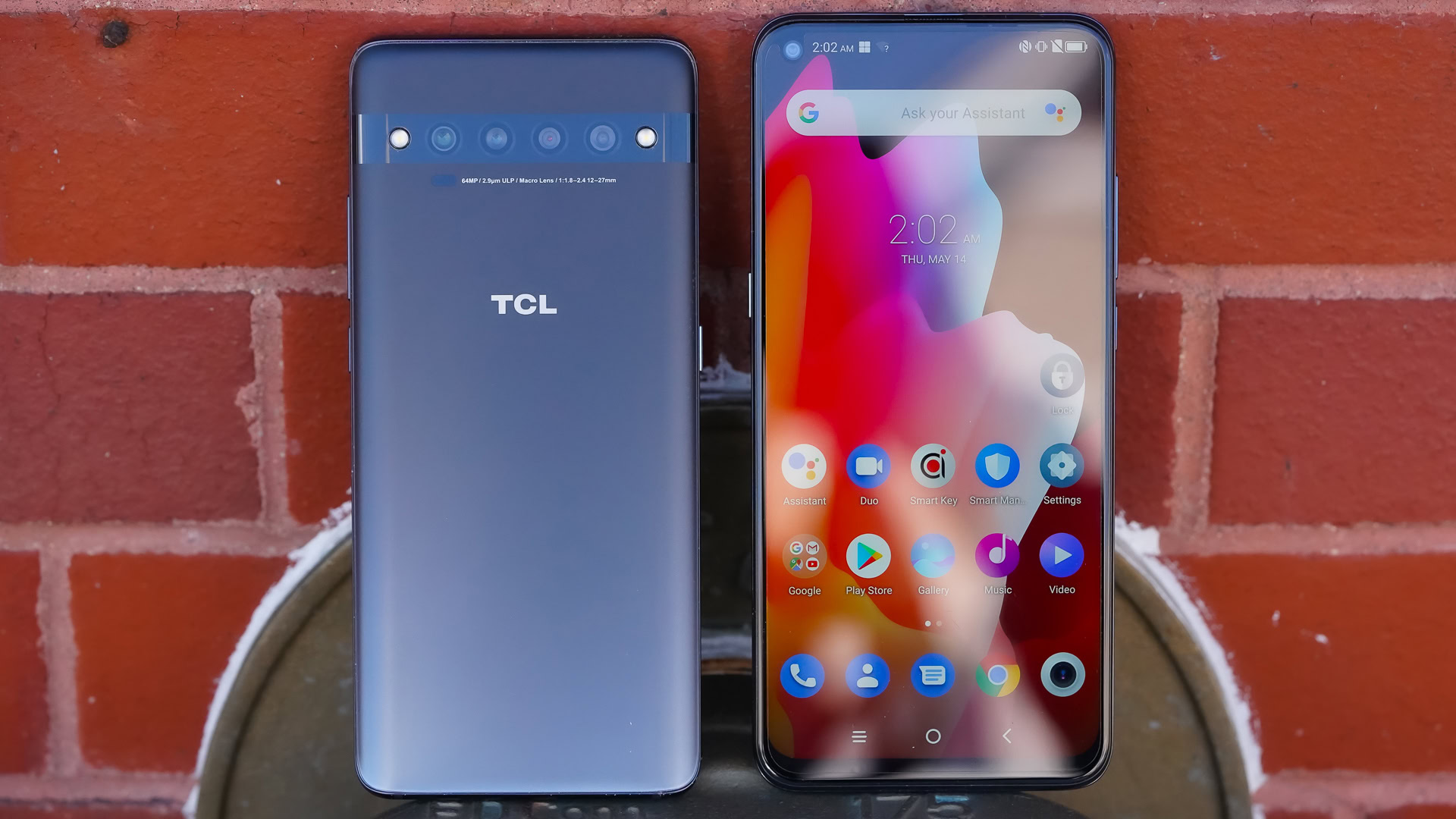
TCL is relying heavily on the visibility of its TV sets, which speckle showroom floors at major electronics retailers, to boost its brand awareness in the US. Following last year’s Plex, the TCL 10 Pro and 10L are the company’s first own-branded phones to reach the US market and they have a steep hill to climb. If there’s anything they have going for them, it’s price. At $449 and $249, respectively, the 10 Pro and 10L are attainable. Will budget-conscious shoppers find TCL’s affordable fare appealing enough to buy?
We have thoughts on that and more in the Android Authority TCL 10 Pro and 10L review.
TCL 10 Pro and 10L review: Who are these phones for?
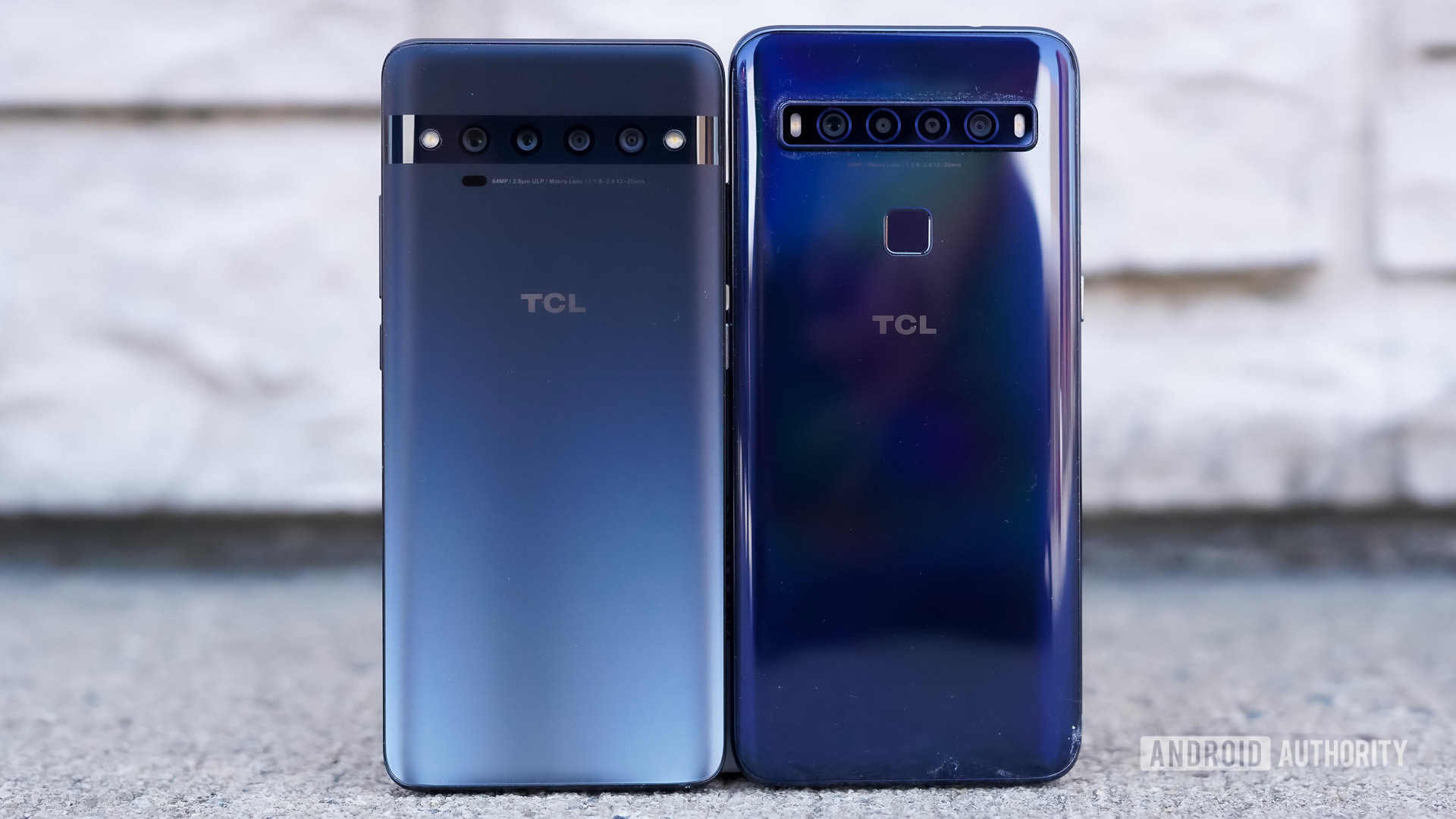
TCL Mobile is the parent company of brands you probably know: Alcatel, BlackBerry (until August 2020), and Palm. It falls under the larger umbrella of TCT, which also owns TCL Display. In short, TCL Mobile isn’t an upstart; it knows what it is doing when it comes to designing and manufacturing phones.
Rather than continue selling phones for other brands, TCL wants to start using its own name on products near and far. TCL Display was first to make a push into the US market with its TVs. The company clearly hopes US consumers recognize the red-colored logo and is thus launching a couple of TCL phones with the help of Amazon, Best Buy, and Walmart (places that sell its TVs). And let’s not forget its folding and rolling display tech.
So what’s the deal with these two phones? The TCL 10 Pro is TCL’s flagship, but not a $1,000 slab. Instead, it’s a sleek $449 smartphone meant to appeal to those who’d rather keep more of their money in their pocket while still getting a high-quality piece of hardware. Alternately, the TCL 10L is more of an entry-level phone that almost pulls off the flagship look — but at a fraction of the price.
Since these phones will be sold unlocked at full price, they mostly target the prepaid crowd. So the question becomes, how much can you really afford to shell out all at once?
See also: Best prepaid plans
Design: Fraternal twins
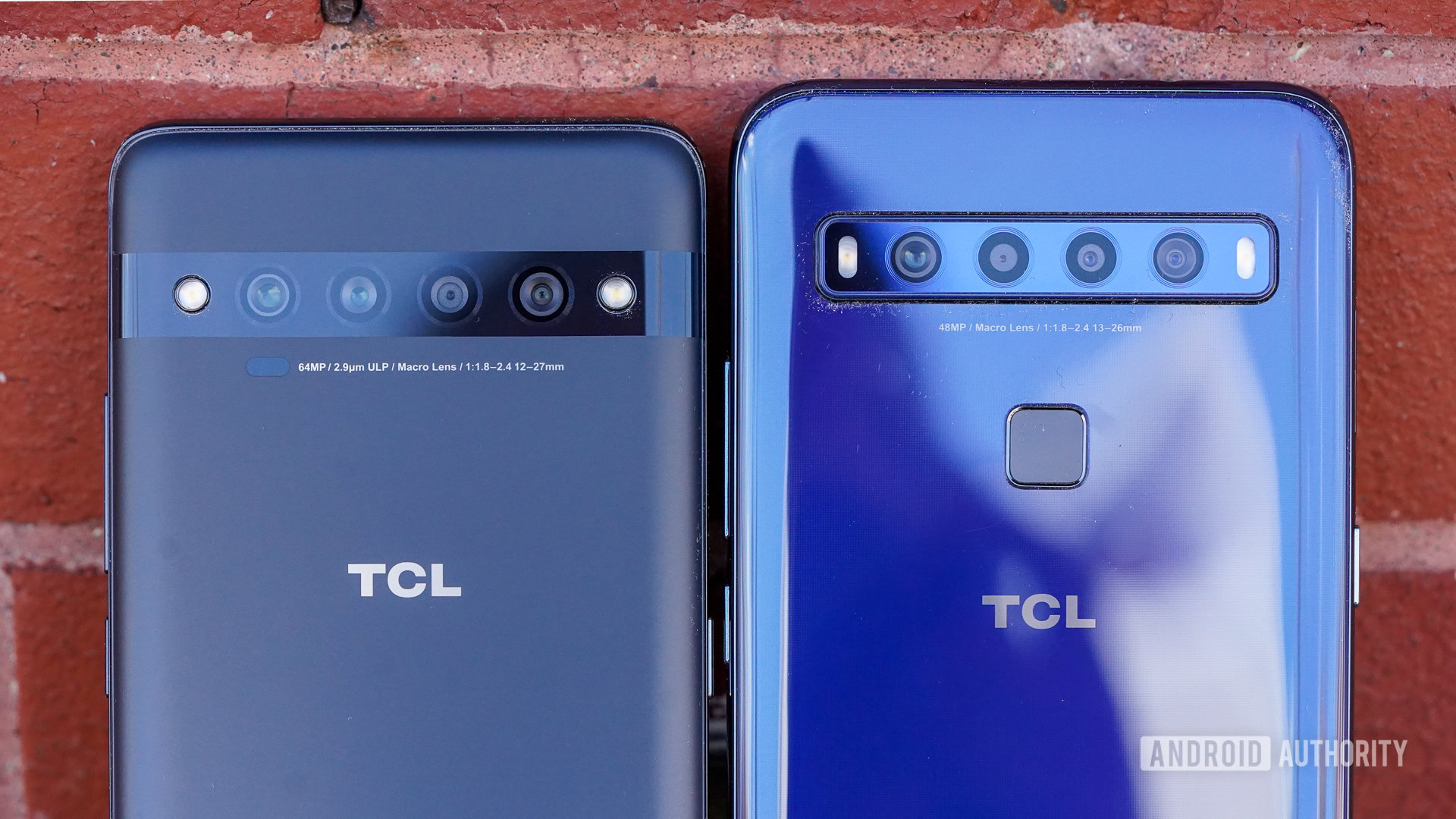
You know those twins you grew up with who weren’t identical, but still kinda looked alike? Yeah. That.
The TCL 10 Pro and 10L share their top-level design language, but the similarities are barely even skin deep. Where the 10 Pro is made of metal and curved glass, the 10L is made from polycarbonate and has flat glass. Where the 10 Pro is sleek yet heavy, the 10L is bulkier but light.
The 10 Pro is a fine piece of hardware that exudes class and confidence. The design is accentuated by contoured metal and curved glass. It’s tall yet narrow, and the satin black finish gives it an understated sense of sophistication. As far as design is concerned, it goes toe-to-toe with mid-range offerings. TCL did a fine job assembling the external components.
The 10L is lesser. It looks and feels more pedestrian than its pricier sibling.
The 10L is lesser. Sort of like the one twin you feel sorry for because the other is so good looking. TCL gave the phone a dazzling blue rear panel, and yet it looks and feels more pedestrian than its pricer sibling. The materials and build quality are good, though at this price point I might prefer the simplicity of Nokia’s design language and build quality.
Shared basics include USB-C and speaker cut-outs along the bottom, headphone jacks on top, and user-programmable action keys on the left edge. On both phones you’ll find the volume toggle and lock button on the right edge. The travel and feedback of the buttons is about the same on both handsets, which is to say decent.
On the rear of the phones you’ll find a dual-flash, quad-camera array that’s quite something. On the 10 Pro, the camera module is flush with the surface and highlighted by a reflective piece of black glass. It looks like a bandit’s mask. On the 10L, the camera module is raised in fashion similar to the Samsung Galaxy S10e from last year. It looks decidedly less classy. The 10L also has an optical fingerprint reader on the rear, where the 10 Pro’s is embedded under the display.
There’s no question the 10 Pro is the more attractive sibling here, but that’s to be expected considering it costs twice as much as the 10L.
How are the screens?
- 10 Pro
- 6.47-in AMOLED
- Full HD+ (2,340 x 1,080)
- 19.5:9 aspect ratio
- 398ppi
- 10L
- 6.53-in LCD
- Full HD+ (2,340 x 1,080)
- 19.5:9 aspect ratio
- 395ppi
Reminder: TCL owns a display company. Both phones use screens from TCL Display. You’ll note a teardrop notch on the 10 Pro and a punch hole on the 10L, both of which accommodate the selfie camera and allow the display to extend nearly to the top edge of the phone.
The screens may have nearly identical specs, but using them side-by-side shows they are quite different. It’s all in the alphabet soup. The 10 Pro has an AMOLED display, while the 10L has an LCD. Differing baseline screen technologies deliver dividends to those willing to spend more.
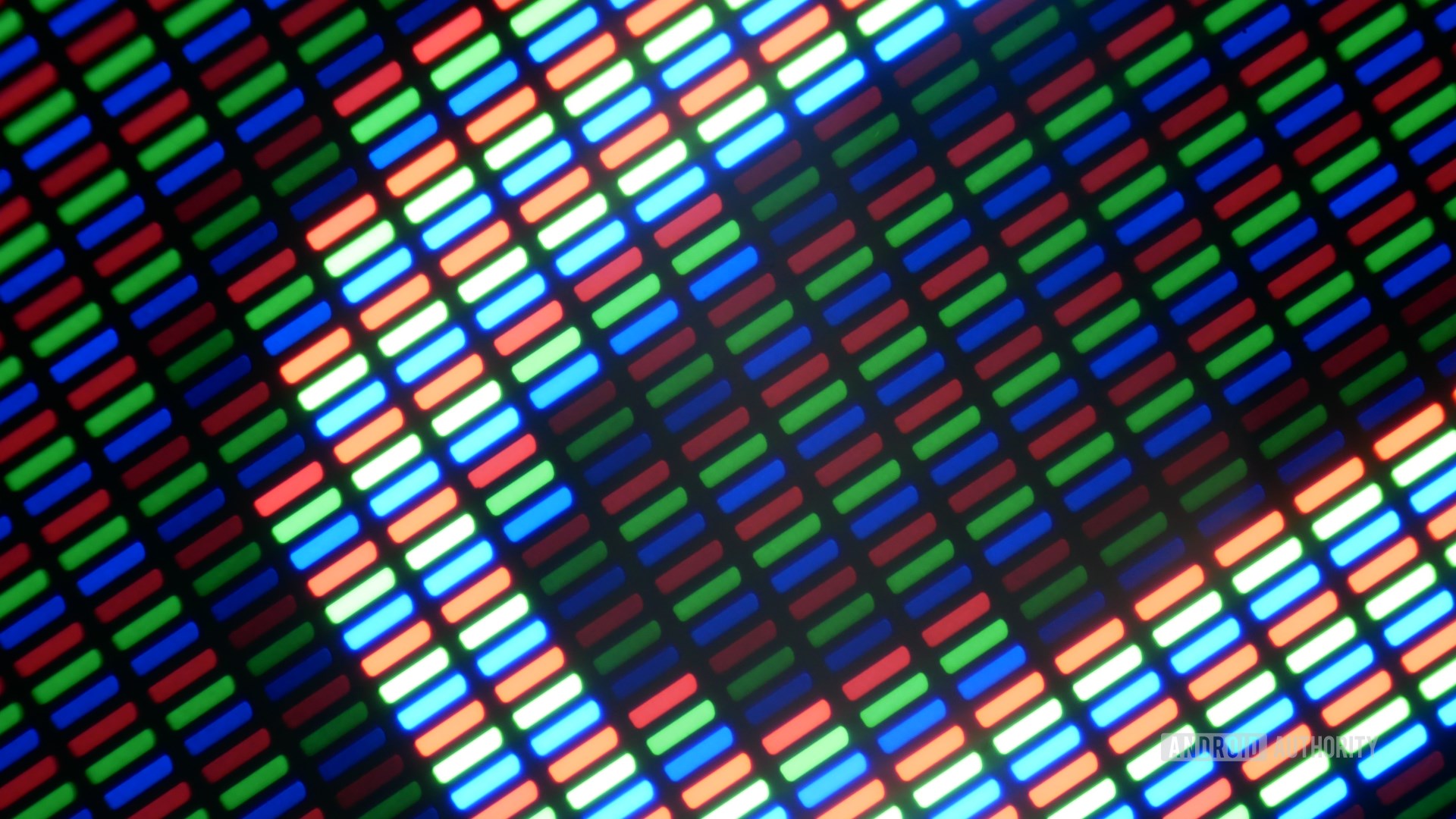
What I like about the 10 Pro’s display is the contrast. AMOLED panels are know for their near-perfect blacks and its superior contrast is quite noticeable when compared to the 10L’s LCD. This impacts color, too. Color on the 10 Pro comes across as more rich. Everything about the 10L’s screen looks a bit more flat — like the glass itself.
That said, these are both fine screens. Colors are accurate, viewing angles are good, and visibility under bright light is solid.
Are they fast?
- 10 Pro
- Qualcomm Snapdragon 675
- Adreno 612
- 6GB / 128GB
- 4,500mAh
- 10L
- Qualcomm Snapdragon 665
- Adreno 610
- 6GB / 64-128GB
- 4,000mAh
The Qualcomm Snapdragon 675 and Snapdragon 665 are designed for phones exactly such as these: affordable fare with an eye toward performance and efficiency. That means the TCL 10 Pro and 10L run fluidly on the day-to-day, but aren’t powerhouses when it’s time to play. Technically speaking, the 675 is a year older than the 665. In fact, it’s a 2018 chip compared to the 2019 date of the 665. This means the performance between the two isn’t terribly different — particularly since both have the same 6GB of RAM.
Benchmark results were interesting. The 10 Pro outscored the 10L on raw CPU power, but the 10L ousted the 10 Pro when it came to GPU power. The newer Adreno 610 GPU held its own against the older Adreno 612 GPU.
Battery life is good, but charging speeds aren’t
As for battery life, I don’t think anyone will be disappointed. The 4,500mAh and 4,000mAh batteries of the 10 Pro and 10L, respectively, push through a full day without breaking a sweat. In fact, they easily manage a day and a half before you need to worry. That’s plenty of power for most people.
Charging speeds aren’t the fastest. The 10 Pro supports Qualcomm Quick Charge 3.0 at 18W. It takes just more than 30 minutes to boost the battery 50%, and just over two hours to get a full charge. The 10L does not support rapid charging and takes a painful 2.5 hours to recharge.
The TCL 10L takes a painful 2.5 hours to recharge.
I think the majority of owners, however, will be pleased with the all-day performance.
See also: Phones with the best battery life
Are the cameras any good?
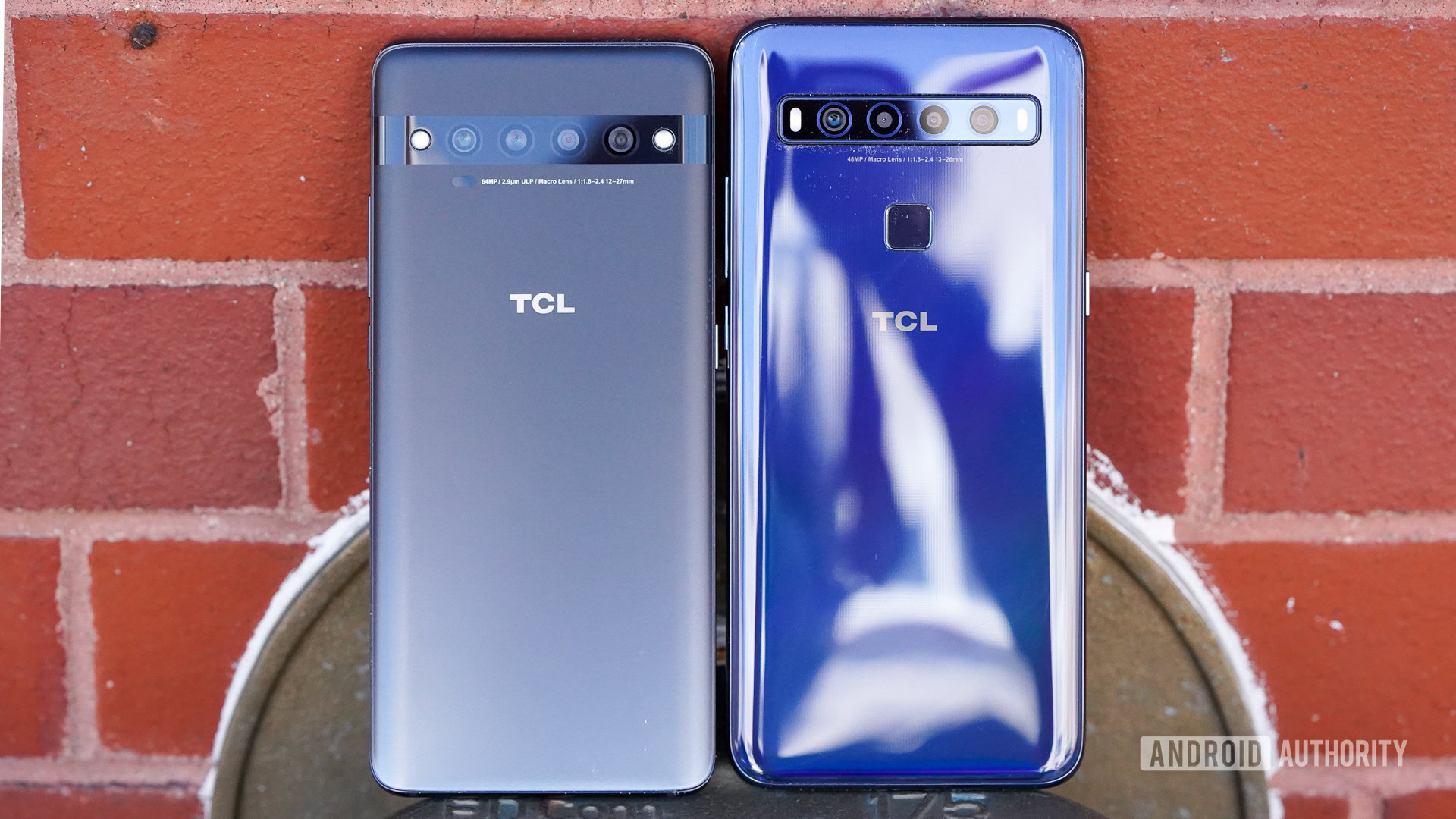
- 10 Pro: Rear:
- 64MP main: 79-deg. FoV, f/1.79
- 16MP ultra wide: 123-deg. FoV, f/2.4
- 2MP macro: f/2.2
- 2MP depth: f/1.8e
- Front:
- 24MP: 79.6-degree FoV, f/2.0
- Video: 4K /1080p @30fps, 720p @30fps
- 10L: Rear:
- 48MP main: 79-deg. FoV, f/1.8
- 8MP ultra wide: 118-deg. FoV, f/2.2
- 2MP macro: f/2.4
- 2MP depth: f/2.4
- Front:
- 16MP: 76-degree FoV, f/2.2
- Video: 4K / 1080p @30fps, 720p @240fps
TCL made one critical error with the cameras on the 10 Pro and 10L: It opted for macro cameras rather than optical telephoto cameras. Other than that, both phones have fairly flexible imaging arrangements with main, ultra-wide, macro, and depth lenses.
The camera app is the same on both phones. I found it to be relatively straightforward and not too difficult to figure out. Core features include HDR, Google Lens, light trace mode, and live photos. Extended shooting modes include panorama, portrait, pro, bokeh, slow-motion/time-lapse, and scene detection.
I think if there’s one thing to say about the camera performance of the TCL 10 Pro and 10L, it’s that they overshoot everything. Color is oversaturated and exposure is overblown. The 64MP and 48MP main sensors of the 10 Pro and 10L, respectively, are solid at capturing daylight scenes, but you can see the boosted color tones in the samples below. The greens are crazy bright. Lots of shots were a few steps off on exposure, such as the tree knot.
That said, the images were plenty sharp, noise was kept to a minimum, and results are decent. Still, the competition is a step ahead in the camera department, with Samsung, in particular, offering better image quality on its $450 phone.
The selfie camera suffered from exposure issues and the portrait mode had trouble sorting my head out from the trees in the background. The bokeh effect is decent, though.
You can shoot video at resolutions up to 4K at 30fps, with slow motion available in several different speeds and resolutions. The video samples I took looked good enough for casual video needs.
Full resolution samples for the 10 Pro are available here, while samples for the 10L are available here.
What is TCL UI?
TCL UI is TCL’s newer user interface skin. It’s a bit much for me.
The phones ship with Android 10 on board. During setup you’ll be asked if you want to use a home screen with or without an app drawer. I chose the former. TCL has its own icons, fonts, and general appearance laid across Android 10.
Advanced features include the Edge Bar for quickly accessing apps or features, gestures for interacting with notifications, gaming mode for blocking notifications altogether, and usability tools such as driving and one-handed mode. Perhaps the best feature? A user-customizable smart key that handles up to three actions (short press, double press, long press.)
Most importantly, TCL UI didn’t get in the way. I may not care for the overall look very much, but the user interface felt fast and fluid as I reviewed the phones. Last, TCL made a commitment to keep the phones updated with Android security patches and system upgrades.
See also: A look at major Android skins
Specs
| TCL 10 5G | TCL 10 Pro | TCL 10L | |
|---|---|---|---|
Display | TCL 10 5G 6.53-in LCD Full HD+ (2,340 x 1,080) 19.5:9 aspect ratio 395ppi 91% screen-to-body 450 nits | TCL 10 Pro 6.47-in AMOLED Full HD+ (2,340 x 1,080) 19.5:9 aspect ratio 398ppi 93% screen-to-body | TCL 10L 6.53-in LCD Full HD+ (2,340 x 1,080) 19.5:9 aspect ratio 395ppi |
Processor | TCL 10 5G CPU: Qualcomm Snapdragon 765G Octa-core Kryo 460 GPU: Adreno 620 | TCL 10 Pro CPU: Qualcomm Snapdragon 675 Octa-core Kryo 460 GPU: Adreno 612 | TCL 10L CPU: Qualcomm Snapdragon 665 Octa-core Kryo 260 GPU: Adreno 610 |
RAM | TCL 10 5G 6GB | TCL 10 Pro 6GB | TCL 10L 6GB |
Storage | TCL 10 5G 128GB MicroSD up to 1TB | TCL 10 Pro 128GB MicroSD up to 256GB | TCL 10L 64 / 128GB |
Cameras | TCL 10 5G Rear: 64MP main: 79.8-degree FoV, f/1.89, 0.8 micron pixel size, 1/1.72-inch sensor size 8MP ultra wide: 118-degree FoV, f/2.2, 1.12 micron pixel size, 1/4-inch sensor size 5MP macro: f/2.2, 1.12 micron pixel size, 1/5-inch sensor size 2MP depth: f/2.4, 1.75 micron pixel size, 1/5-inch sensor size Front: 16MP: 79-degree FoV, f/2.2, 1.0 micron, 1/3.06-inch sensor size Video: 1080p @ 30fps, 720p @ 30fps | TCL 10 Pro Rear: 64MP main: 79-degree FoV, f/1.79, 0.8 micron pixel size, 1/1.7-inch sensor size 16MP ultra wide: 123-degree FoV, f/2.4, 1.0 micron pixel size, 1/3-inch sensor size 2MP macro: f/2.2, 1.12 micron pixel size, 1/5-inch sensor size 2MP depth: f/1.8, 2.9 micron pixel size, 1/2.8-inch sensor size Front: 24MP: 79.6-degree FoV, f/2.0, 0.9 micron, 1/2.8-inch sensor size Video: 4K @ 30fps, 1080p @ 30fps, 720p @ 30fps | TCL 10L Rear: 48MP main: 79-degree FoV, f/1.8, 0.8 micron pixel size, 1/2.25-inch sensor size 8MP ultra wide: 118-degree FoV, f/2.2, 1.12 micron pixel size, 1/4-inch sensor size 2MP macro: f/2.4, 1.65 micron pixel size, 1/5-inch sensor size 2MP depth: f/2.4, 1.65 micron pixel size, 1/5-inch sensor size Front: 16MP: 76-degree FoV, f/2.2, 1.0 micron, 1/3.1-inch sensor size Video: 4K @ 30fps, 1080p @ 120fps, 720p @ 240fps |
Battery | TCL 10 5G 4,500mAh Quick Charge 3.0 9V2A | TCL 10 Pro 4,500mAh Quick Charge 3.0 OTG Reverse Charging 5V/1.5A | TCL 10L 4,000mAh |
Wireless | TCL 10 5G Sub-6GHz 5G (Bands n1, n3, n8, n28, n77, n78) LTE 4G Dual-band WiFi Bluetooth 5 w/aptX, LDAC, Super Bluetooth | TCL 10 Pro LTE 4G Dual-band WiFi Bluetooth 5 w/aptX, LDAC, Super Bluetooth | TCL 10L LTE 4G Dual-band WiFi Bluetooth 5 w/aptX, LDAC, Super Bluetooth |
Colors | TCL 10 5G Chrome Blue, Mercury Gray | TCL 10 Pro Forest Mint Green, Ember Gray | TCL 10L Arctic White, Mariana Blue |
Dimensions | TCL 10 5G 163.65 x 76.56 x 9.05mm | TCL 10 Pro 158.5 x 72.4 x 9.2mm | TCL 10L 162.2 x 75.6 x 8.4mm |
Weight | TCL 10 5G 210g | TCL 10 Pro 177g | TCL 10L 180G |
| TCL 10 5G | TCL 10 Pro | TCL 10L |
TCL 10 Pro and 10L review: Should you buy either?
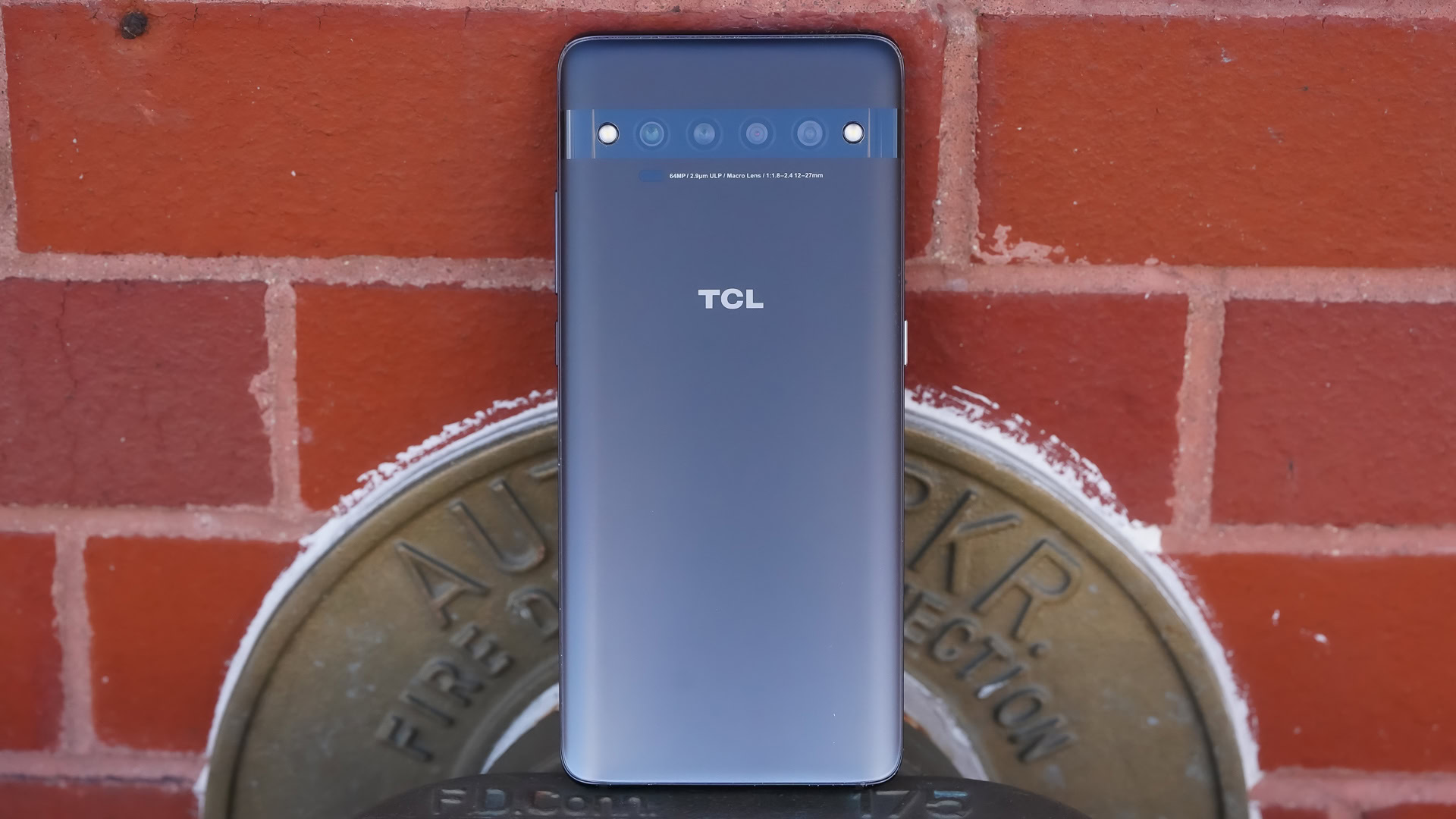
Unlocked, affordable phones are widely available in the US at retailers such as Amazon, Best Buy, and Walmart — all TCL launch partners — as well as Bell and Telus in Canada. On those store shelves, you’ll find offerings from the likes of LG, Motorola, and Nokia, amongst others. Phones in the $250 – $500 price segment vary wildly in terms of quality, features, and performance, though none are truly bad. The TCL 10 Pro and 10L are solid offerings in this part of the market.
The 10L is a perfectly serviceable phone for someone who needs something relatively cheap. The 10L performs just fine, but nothing about it is truly exceptional. The $249 price point ($350 CAD) is a fair price, but I think the Nokia 6.2, which costs the same, is a better buy for the design alone, not to mention the closer-to-stock version of Android and commitment to updates. Same goes for the new Motorola G Power, which delivers a crushing two+ days of battery life.
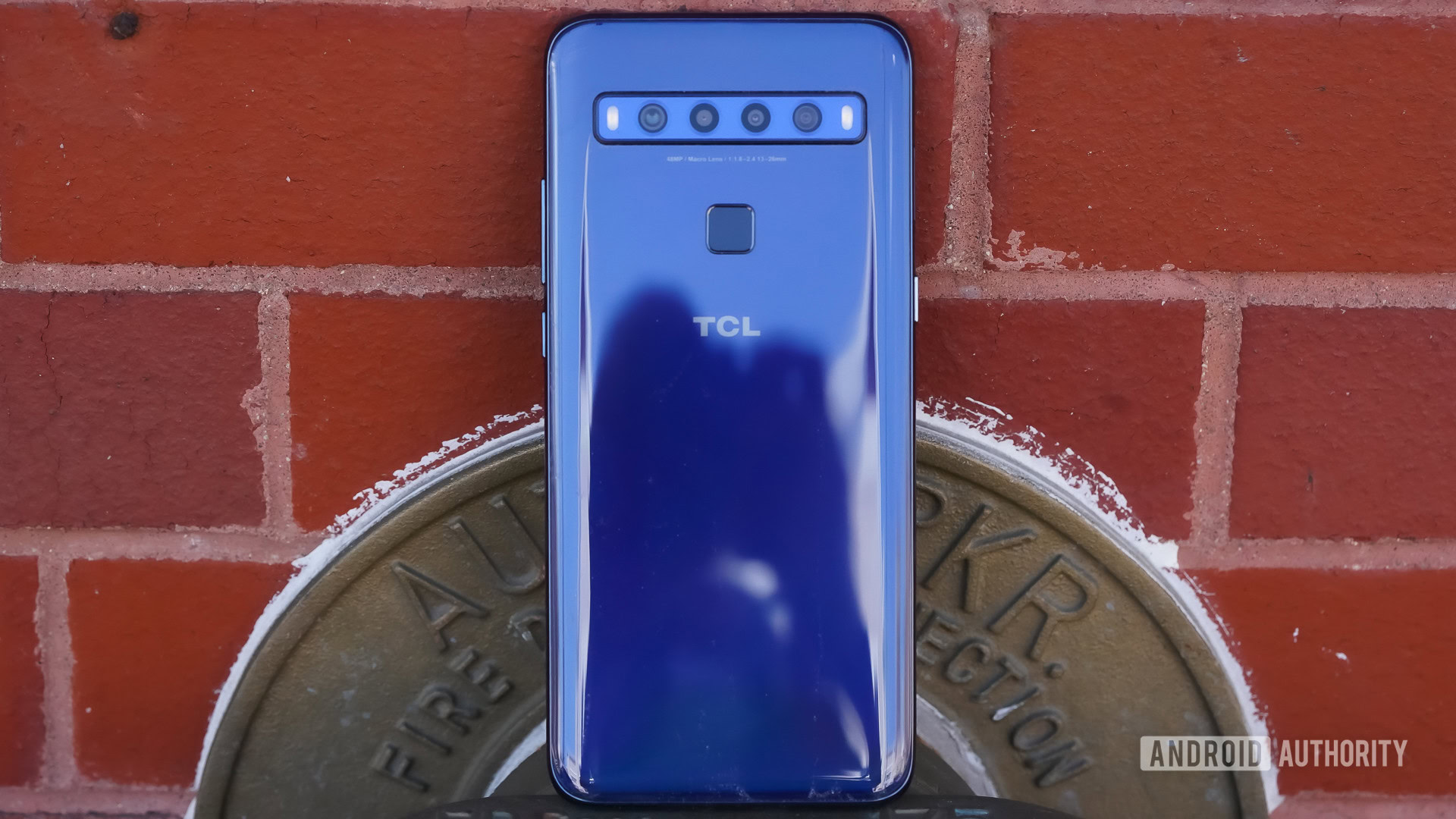
The 10 Pro is clearly the better of the two devices, but it carries a higher $449 price tag ($700 CAD). The higher cost is warranted thanks to the classier, finer build and superior display. I wish the 10 Pro’s overall performance outranked the 10L by a bit more, particularly when it comes to speed and battery life. The camera is definitely better, but not by enough. I’d recommend the TCL 10 Pro to those looking for a cut from a different cloth when compared to other $400 – $500 phones. It goes head to head against the Samsung Galaxy S10 Lite, which is an option you might consider if you prefer Samsung’s design and/or software.
The cameras are perhaps the weakest link in the chain. They aren’t quite up to par with what’s available from Nokia and Samsung for the price.
TCL did a fine job with its first wave of own-branded phones for the US and Canada. In general, the 10 Pro and 10L are solid devices that should do well. I wish they stood out from the crowd a bit more, which might have helped TCL earn more recognition.
This concludes Android Authority‘s TCL 10 Pro and 10L review.
TCL in the news
- TCL’s new true wireless earbuds, tablets, and smartwatch won’t break the bank
- Nervous about buying a TCL 10 Pro? The company made an update schedule promise.
- The TCL 10 Series redefines affordable flagships (Update: North America date)
- TCL’s rollable concept phone is magical
- TCL allegedly has concept phone with slide-out flexible display, renders here